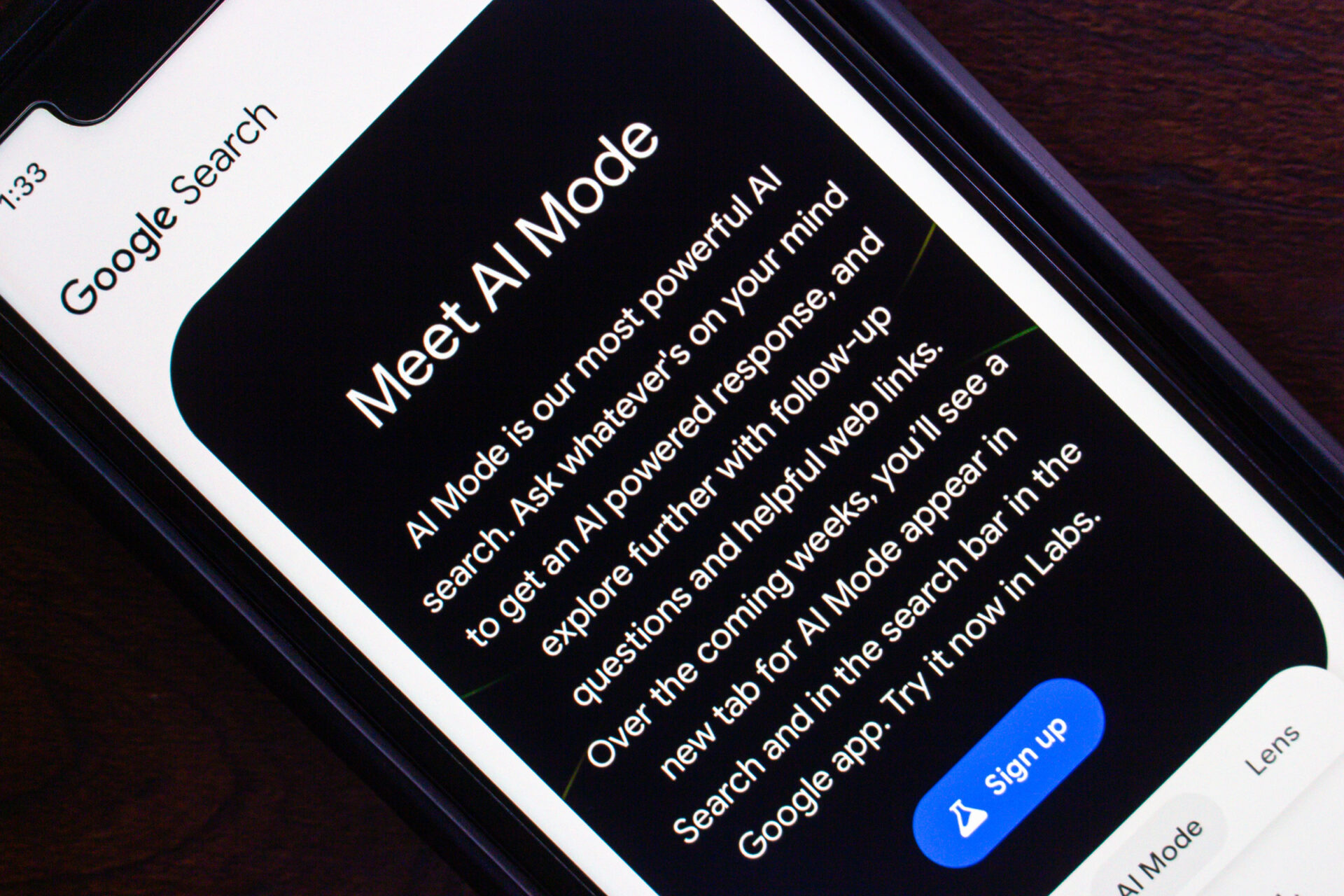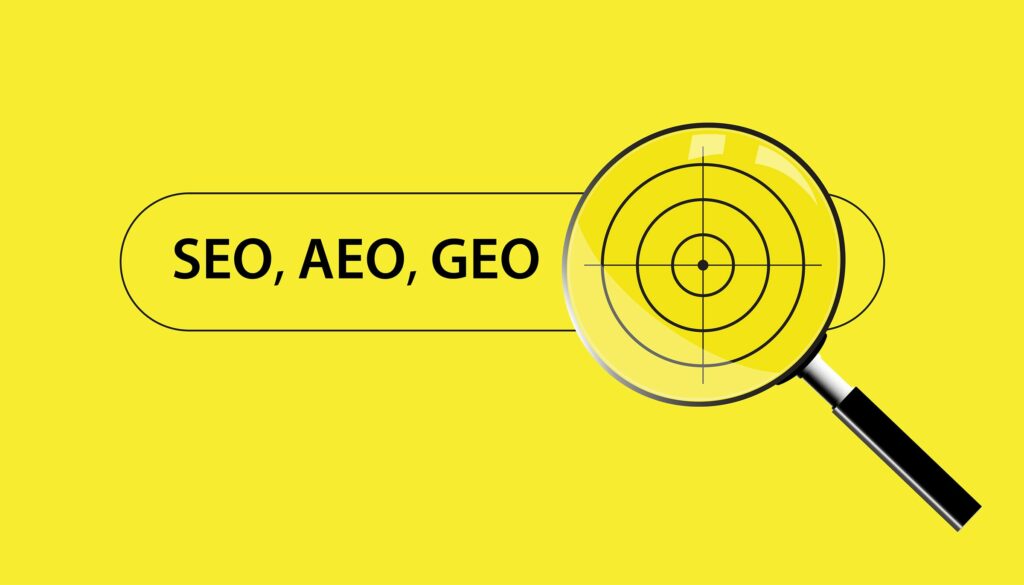Google has changed the rules again. This time, it’s all about AI-powered search features like AI Overviews and AI Mode. So businesses need to adapt. The question is – are you ready to adapt and not just survive?
I have written about this topic here and here previously, but with Google’s announcement this morning, we thought we would break down their own latest guidelines for optimising your website content for those AI-driven searches. We’ll cover everything from technical requirements to user experience and new success metrics. So you can stay ahead in this changing digital landscape.
The Age of AI Search
Google’s shift to AI search features is driven by its mission to give users more meaningful, detailed and contextually relevant answers. With more people asking longer, more specific questions through conversational and voice-based search queries, content consumption and display have changed online.
What does that mean for businesses? Simply put, rankings are no longer just about which page uses the most keywords. Today, success goes to sites that put user intent and content quality first.
Google’s guidelines are the playbook for success in this new age. And understanding them is key if you want to stay competitive.
Content Quality Still Rules
Content quality is still king in Google’s ranking process, even with AI search. The algorithms prioritising AI-driven features aim to reward websites with unique, informative, and user-focused content, not those trying to game the algorithm.
So you should focus on:
- Writing for your audience, not just for search engines. Does your content meet a need or answer a direct question?
- Creating authoritative and detailed content within your niche. Depth over keywords is the way to go.
- Updating your site regularly with new insights and perspectives to keep it relevant and engaging.
AI-powered results are designed to curate the best content for users in a conversational tone. Your goal is to write content that Google trusts for those answers.
Getting Technical
But AI search isn’t just about what you say—it’s also about how your website is built. Google highlights several key technical priorities to ensure your site is crawlable, indexable and optimised for performance.
Here are the key takeaways:
- Allow Googlebot access to your site. No blocks in your robots.txt file, please.
- Optimise your page load speed. Slow sites lose visitors. Use PageSpeed Insights to find performance bottlenecks.
- Make sure your site is mobile-friendly. Google’s Mobile-Friendly Test can help you check that.
- Check that all your key web pages are indexable. Use Google Search Console to check your indexing status.
Simplifying these behind-the-scenes factors makes it easier for Google to show your content in AI search features.
Adapting to New Metrics of Success
When it comes to measuring success in AI search, you need to think about meaningful metrics that align with your business goals. That means focusing on engagement over traffic, conversion rates and user actions.
Optimising for AI search means rethinking what success looks like. Focus on driving real engagement, not just chasing vanity metrics.
The Role of Multimedia in AI Search
Multimedia content (like high-quality images and videos) plays a big role in Google’s AI search features. Visuals capture attention, enhance the user experience and retention. Here’s what you need to know:
- Use images and videos that add value to your content. Make sure they are clear, properly formatted and optimised for web use.
- Use schema markup to make your multimedia content discoverable by search engines.
- Include descriptive alt text for images and detailed captions for videos to improve accessibility and SEO.
By adding multimedia to your text content, you can outrank your competitors and offer a better user experience.
Control Over Content Visibility
Google provides tools like the nosnippet and noindex tags to help publishers control how their content appears in AI search features.
Future-Proofing
The future of search is AI-driven, and that’s a reality website owners need to get on board with. Fast. Google’s guidelines are a clear indication of where things are headed: AI algorithms, personalised search experiences and voice search integration will change the game. Staying ahead of those trends is what will keep your business competitive.
Here’s a quick checklist to keep you there:
- Audit your website to make sure you’re technically compliant (indexability, Googlebot access). That’s just good housekeeping.
- Optimise your content for what really matters: user intent. Not just keywords.
- Engagement metrics like conversions and user actions should be your focus. That’s where the real value lies.
High-quality multimedia content can really help your site. And your audience will thank you.
Partner With Experts for AI SEO Success
As AI trends evolve, you need to review and adjust your SEO strategy regularly. That’s just the way it is. Get in touch. HyperWeb can help you with AI SEO. Whether you need to up your content game, technical SEO or redefine what success means, we’re here to help. Contact us today to get the most out of your website in AI search.




